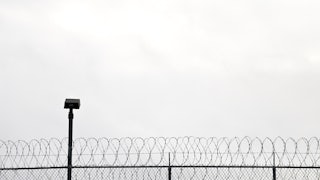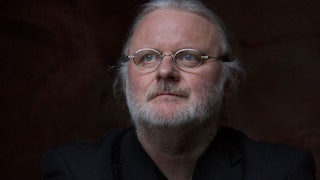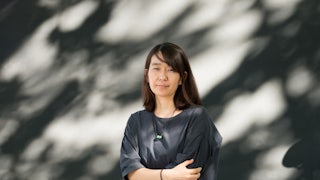Men: What’s their deal? It’s an inescapable question nowadays. Men! They’re failing at school and at work. They have lost the ability to work with their hands, like the men from Way Back When who were carpenters and made nails and screws out of wood, with their hands. Men today don’t do any of that. They podcast. They livestream. They gamble—not just on sports, which is virtuous and noble, but on all kinds of crazy shit, like the results of Belgian regional elections and the timing of the next Doritos flavor drop. Today’s men are covered in Dubai chocolate. They’re watching someone livestream about another stream.
Over the past two years, every magazine in this country—all seven of them—has devoted hundreds of thousands of words to the ever-present and all-important subject of men and why they are failing. They have provided dozens of possible explanations: the decline of manufacturing, unions, and the American middle class; the feminization of American culture; the rise of wokeness; the existence of women; fluoride.
But are men actually losing? Look past the smears of Dubai chocolate, and you’ll notice that men have spent the past 11 months notching some serious wins. They delivered the presidency to Donald Trump. They made Paul Thomas Anderson’s One Battle After Another the number one movie in the world. They have produced literally millions of hours of podcasts—more hours of podcasts than the total number of wooden nails and screws produced by their ancestors. And now, at long last, they have their own Nobel laureate: Hungarian novelist, screenwriter, and all-around dark wizard of ennui, László Krasznahorkai, who won the Nobel Prize in literature on Thursday. That’s right—for the first time in history, a man has won the Nobel Prize. That sound you hear? It’s a graduate student sobbing with joy. Big, manly sobs.
Krasznahorkai’s victory should hardly come as a shock. He is, by the meager standards of contemporary literary fiction, a global superstar. Serious young men, it seems, are everywhere, and, while their cumulative student debt varies from country to country, they are pretty much the same (glasses, a Letterboxd account, an almost staggering inability to talk to women) whether you’re in New York, Budapest, or Seoul. To the extent that it’s surprising, it’s only because there was a general expectation that the Academy would first reward Péter Nádas, Hungary’s other author of challenging, exportable fiction, because he is older. But it turns out that every copy of Parallel Stories in Sweden is being used to stabilize wobbly Ikea tables. And Krasznahorkai’s eventual victory has been treated as all but assured for years. Why wait?
Krasznahorkai is, after all, a consummate laureate, a writer of novels people not unreasonably like to describe as challenging, difficult, elusive—and other words that could also describe the possibility of social democracy in the United States. Krasznahorkai has famously collaborated with the challenging, difficult, elusive filmmaker Béla Tarr and probably has a superlative collection of György Kurtág records. In the Swedish Academy’s phrasing, his is a “compelling and visionary oeuvre that, in the midst of apocalyptic terror, reaffirms the power of art.” Fair enough. Krasznahorkai described it better when he said his work was “reality described to the point of madness.”
So: a victory for high literature, for inevitability, for oppositional culture, for men. But for the obsessives who have been attending to the saga of the Nobel Prize in literature over the past decade, it’s also something of a bummer.
Not that long ago, the Nobel was fun. It was a topic of metaphorical watercooler conversations (metaphorical because the watercooler industry cratered after the rise of “alternative seltzers” and also because nearly everyone who cared about it was unemployed) and metaphorical drawing-room chatter (metaphorical because the only people who can afford drawing rooms are venture capitalists who have lost the ability to communicate verbally). In a given year, the prize could be won by an oral historian whose work was necessarily given over to the voices of other people; a writer whose perspective on Serbian culpability in the 1990s was more avant-garde than his boundary-shifting prose; and a self-described “song and dance man” whose first and third-eldest sons produced arguably more deserving work (How High and “One Headlight,” respectively).
This was the Nobel Prize’s weird era, and it was exciting. It was easy to project all kinds of political and cultural arguments onto the Swedish Academy’s decision-making (high art vs. popular art, inclusiveness vs. whatever it is Peter Handke represents, Eurocentrism vs. internationalism, poets vs. normal writers)—because the Swedish Academy itself was a site of insane contestation.
The Nobel’s weird era was also a reflection of the absurdity of the prize itself. The prize bills itself as the definitive literary award, one that ensures canonization—and who hasn’t had the experience recently of seeing someone reading a novel by a past laureate like Henrik Pontoppidan or Dario Fo on the subway?—but is decided by a group of obscure Scandinavian eggheads. Their status comes not from merit or authority but from tradition: 125 years ago, Alfred Nobel put some of his dynamite money toward a literary prize and we’ve been stuck with it ever since.
That the Swedish Academy was routinely beset with scandal, infighting, and controversy only drove the point home: What business does a group of people from a country whose lone contribution to global culture over the past century is ABBA Gold have deciding the global literary canon? (To be fair, that is also the greatest contribution to global culture over the past century.) Sure, the winners were usually pretty solid, but it was hard not to feel that they were less interesting than the processes, decisions, and controversies that got them the, uh, gold.
One upside of the Nobel’s weird era was that it was easy for, say, a couple of guys to write about in, say, The New Republic. Easy to make jokes about Philip Roth sitting around waiting for the phone call that never arrived; easy to make jokes about Mircea Cărtărescu’s rabid, virginal fan base; easy to make jokes about deciding that writing a novel about a goalie who kills someone is as important as speaking at Slobodan Milošević’s funeral. Maybe even more important. (We are committed to making jokes about the Handke thing until the final death of American civil society.) As cultural politics got amped up in the first Trump era, extrapolating from the Nobel Prize’s shenanigans felt totally effortless—and any time it got a little harder, the Swedish Academy itself would do something nutty to move things along. All prizes are dumb, but literary prizes are especially stupid. And the Nobel Prize was the most ridiculous of all.
Sadly, a close or even distant reading of the past few winners suggests that the Nobel’s weird era is over. After the batshit run of Alexievich, Dylan, Ishiguro, Tokarczuk, and Handke (the latter two awarded in a single year because of a #MeToo/gambling controversy that embroiled the Academy in 2018—a combination of factors that in retrospect stands in for much of what ails the world today), things have been normal, solid, and respectable. No gripes with Glück and Gurnah, no errors with the choice of Ernaux, no fault with Fosse, all kredit to Kang and, now, Krasznahorkai. How respectable! How solid! But—crucially—what are two unprofessional Nobel commentators to do?
Making it all worse is the fact that members of the old guard of deserving and mockable candidates have, annoyingly, been dying. Their passing has been a loss for literature, sure, but mostly it’s a loss for your humble Nobel speculators. Those guys (obviously, they were all guys) were so easy and fun to pick on. (Roth was desperate … and horny! McCarthy was pretentious … and horny! Amis was self-important … and horny! Marias … well, Marias was just horny.) It’s true that we still have Michel Houellebecq and Gerald Murnane to kick around (the former is currently chain-smoking, hard at work on a novel called Caliphate: An Epiphany; the latter is eight beers deep at the Men’s Shed in rural Australia). But let’s be real: It’s just not the same.
Not only that, the Nobel Prize has become almost predictable. There are still surprises, sure—no one saw Han Kang coming—but on the whole you can presume that if a writer’s book is wrapped in a dust jacket with the word “visionary” somewhere on the flap and a silver medal on the front cover (a lesser prize, like the Man Booker), you’re dealing with a future laureate.
Jens Liljestrand, Nobel watcher, novelist, and longtime friend of this column, had this to say about Krasznahorkai: “Very expected. Very popular name among critics. Also very typical Academy choice: serious, epic, dark-but-humanistic narrator of the apocalyptic European 20th century.” Not only that, but Liljestrand already knows who next year’s winner will be: The new Swedish Academy has reliably rotated between awarding men and women, which means we can get started on next year’s column right now, a piece in celebration of 2026 Nobel Prize–winner Joyce Carol Oates. (The 2026 prize will be specifically awarded for Oates’s tweets about ISIS and dinosaur hunting and “wan little husks,” masterpieces of deadpan humor that were, like all great art, misunderstood upon first appearance. There will be no mention of any of her 157 books—or the fact that she is the greatest boxing writer ever.)
After that it will be another man. Call it the Liljestrand Theory: a woman and then a man. Usually a European man. “Every other year or so it has to be old, male, European and laundry-list,” Liljestrand said—referring to the rapidly diminishing list of canonical writers the Academy regularly plucks from. In this sense, the Academy is honoring tradition: The Nobel Prize “continues to be basically be a European prize, with varying degrees of curiosity regarding the rest of the planet.”
But if the Nobel is no longer fun, at least there’s still a fan base to pick on. The New Republic’s statisticians are indisposed (they’re still crunching the numbers—Kamala Harris can still win Pennsylvania!), but we’ve done our own calculations and they’re definitive: No readers have been made fun of in these pages as much as the fans and champions of László Krasznahorkai. They are self-serious, self-important, and very online; the line for the men’s bathroom when he makes his biannual appearance at a New York bookstore is longer than it is at a Steely Dan concert.
Before you freaks start posting about us on Reddit, however, we will be pedantically clear: We are you. We love Krasznahorkai and his hypnotic gloom. He has far more range than he’s given credit for (by us). He’s funny. The Béla Tarr alliance was an extraordinary moment in culture. OK? Happy? Now we can address more important subjects, like how you live in a basement and spend more time watching pornography than reading books. The basement is owned by your parents, who are worried about you. They’re not thrilled about the OnlyFans bills, either. And, ugh, what’s that all over your copy of Seiobo There Below? Is it mold? We hope it’s mold ...
In an age of rising fascism and tyranny-via-Medbed-meme, the truth is that fun is probably too much to ask for. Today’s literary culture is obviously more imperiled than it was when The New Republic first became a Nobel analysis outfit a decade ago. Subtle and blunt-force censorship is on the rise everywhere, and more people are spending more money than ever on technologies that claim to make art, definitely don’t make art, harvest art’s raw materials, and are ultimately invested in the project of destroying art altogether. They won’t win, but they’re damaging and extremely tiresome. Which is all to say that as much as we’d prefer to make jokes about @krasznahorguy1954, we have to acknowledge that, in the age of ChatGPT, there is almost something heroic about never shutting the fuck up about The Melancholy of Resistance. The Nobel Prize got it right, and literary life is far better for having the Nobel be a part of it, as esoteric, imperfect, and eerily Swedish as it might be.
If you asked ChatGPT nicely, it could write a single sentence that stretched on forever. But it couldn’t produce the disorienting effects that Krasznahorkai’s winding, restless sentences generate with total consistency. This the right moment for “reality examined to the point of madness.” It’s hard not to feel immensely grateful for Krasznahorkai’s ceaseless examination, and hard not to feel grateful to the Nobel for endowing it with visibility and credibility. It is, first and foremost, a victory for men: No one can say we don’t read books again! But—and it certainly doesn’t work out this way most of the time—it is a victory for all serious readers as well.
This is how bad life in the early days of the ChatGPT Era is: Even we have to admit that the Nobel Prize is good for something.




